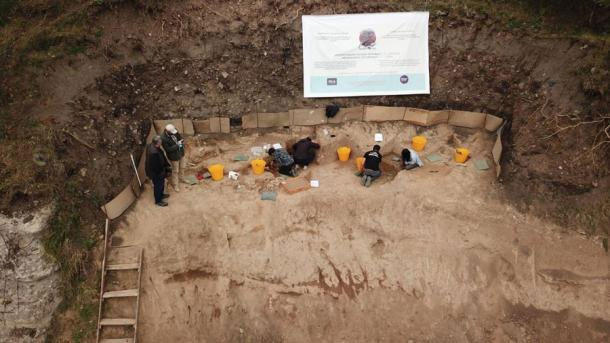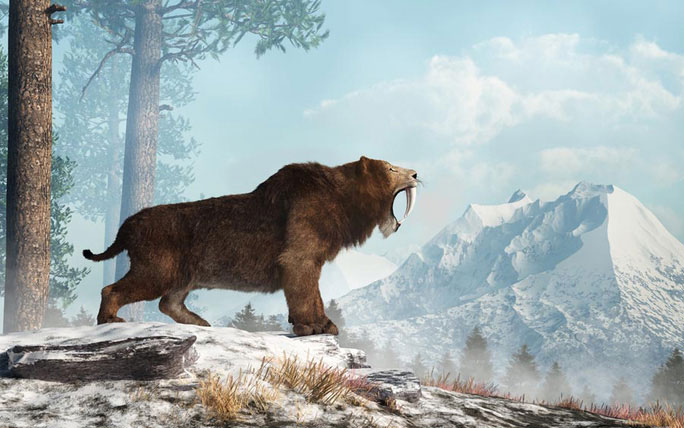Unexpected discovery of 2 million years old humans living with monsters
One of the fearsome beasts that roamed Eurasia a few million years ago may have encountered a more fearsome predator - Homo erectus.
New research from the National Museum of Georgia (Georgia, a country located at the intersection of Eastern Europe and Western Asia) reveals findings that "completely change the previous understanding of the Orozmani site", an archaeological site famous antique in Georgia, according to Agenda.

Scientists are working at the archaeological site - (Photo: National Museum of Georgia).
Orozmani is a famous site that is considered the first place where humans left Africa to explore the world - 1.8 million years ago. Homo erectus, or "upright man", was one of the first species to be relatively similar to modern humans, but still bear many wild features. One of them is that they still live as exceptional carnivores with meat making up most of the diet.
According to Ancient Origins, in the new excavations, scientists not only found Olduwan stone tools - a type of tool dating from 2.6 million years ago - but also found remains of animals, including fascinating Leading the way is Homotherium, the fearsome saber-toothed cat that roamed the Earth between 4.5 million and 11,700 years ago.
Homotherium is distributed in many parts of North America, Eurasia and Africa. However, this is the first time its remains have been discovered lying with human tools.

Homotherium saber-toothed cat - (Photo: Georgian National Museum).
However, since this is such a ferocious beast, the theory that it was tamed and cohabited by early humans is quite unreasonable. Scientists believe that when exploring Eurasia 1.8 million years ago, Homo erectus competed with this creature for food and territory, because both were equally terrifying carnivores. The ill-fated Homotherium ended up as the meal of our ancestors.
- 5 scary horse monsters in ancient tales
- Biological fossil discovery 545 million years ago
- The monsters in the lake make humans terrified
- Humans and sharks have the same ancestors
- Discovery of dinosaur embryos dating back 190 million years
- Unexpected results of Loch Ness monster hunt
- Discovering fossils of 250 million-year-old sea monsters
- Jurassic fossils discovered Jurassic sea 10m long
- 3 'water monsters' existed in life before dinosaurs appeared
- Discovered the origin of the monster Tully 300 million years ago
- Discover strange creatures footprints 310 million years ago
- Detecting huge fossil bones of sea monsters
 Discovered an ancient centipede fossil 99 million years old
Discovered an ancient centipede fossil 99 million years old Discovered bat-like dinosaurs in China
Discovered bat-like dinosaurs in China Discovered a 200-year-old bronze cannon of the coast
Discovered a 200-year-old bronze cannon of the coast Discover 305 million-year-old spider fossils
Discover 305 million-year-old spider fossils